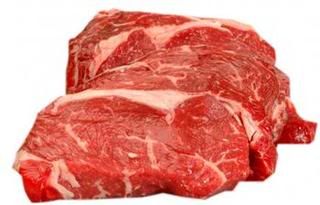Just where did that burger come from?

CHICAGO, Dec 26 (Reuters) - Mexico suspended purchases from 30 U.S. meat plants due to sanitary issues, which sent U.S. cattle and hog prices sharply lower on Friday and prompted speculation the ban was retaliation against a U.S. labeling law. Early on Friday, U.S. analysts said the bans were likely because of Mexico's opposition to a recently enacted meat labeling law. The law, commonly called Country-of-Origin Labeling or COOL, requires that meat packages in U.S. supermarkets carry labels stating the countries where the meat animals were raised. Mexico and the U.S. Agriculture Department both denied the retaliation charge.
[snip]
Mexico is a leading buyer of U.S. meat and said that purchases from the affected plants could resume as early as Monday. "If everything goes well, the plants could be re-listed next Monday," Mexico's agriculture ministry said on Friday. The ministry said the affected plants fell short on standards like packaging, labeling, and some transport conditions. USDA said it is working with Mexico and the meat companies to resolve the issues.
CANADA, MEXICO OPPOSED LAW
U.S. consumer and farm groups say the labeling rules will distinguish U.S.-grown food from imports on the grocery shelf and fulfill the shopper's right to know about products. Canadian and Mexican officials have opposed the law arguing that it will have U.S. meat plants and consumers discriminating against non-U.S. animals and meat. Both countries ship livestock into the United States. "It appears they (Mexican officials) are using this to send a signal to our government that they don't like COOL," Don Roose, analyst at U.S. Commodities, said earlier on Friday. Earlier this year, Mexico had warned many U.S. meat plants of alleged "point of entry violations" and Friday's suspensions may have been related to that, Jim Herlihy, spokesman for the U.S. Meat Export Federation, said early on Friday. Point of entry violations could be a number of things including incorrect paperwork or labeling issues, he said.
BANS MAY BE LIFTED SOON
Prior to Mexico saying shipments could resume on Monday, Roose had predicted the bans would be short, because Mexico needs the meat for its population. "You have to feed the masses," he said. News of the bans prompted selling in U.S. cattle and hog markets at the Chicago Mercantile Exchange on Friday, with cattle prices dropping 2 to 2.5 percent and hog prices dropping about 3 percent. "That is bad news," Jim Clarkson, Chicago-based analyst at A&A Trading said of Mexico's action. "They (Mexico) are fighting COOL." After Mexico denied it was retaliating for COOL, Clarkson still predicted the labeling law may have helped prompt the bans.

No comments:
Post a Comment